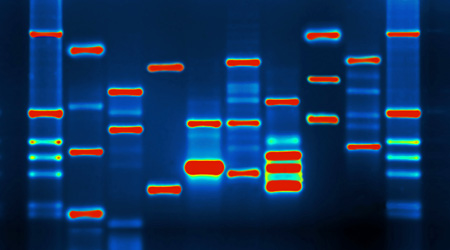Supreme Court Blocks Genomic DNA Patents

The U.S. Supreme Court ruled today in a nearly unanimous decision that naturally occurring genetic sequences are not eligible for patent protection as reported by Bloomberg. The ruling was the result of a lawsuit brought by Sandra Park, an attorney with the American Civil Liberties Union, over patent claims by Myriad Genetics Inc.
Myriad Genetics holds patents on genetic testing for the BRCA1 and BRCA2 genes which are associated with an increased risk of developing breast cancer. University of Utah scientists first discovered and patented the sequences and then later transferred the patents to Myriad. The company then filed for additional patents covering the testing process in more detail.
The ruling wasn't a complete victory for either side of the gene patenting debate. While the court determined naturally occurring genetic sequences did not qualify some of Myriad's patents are still eligible for patent protection.
"Myriad did not create anything" with isolated DNA, Justice Clarence Thomas wrote for the court. "It found an important and useful gene, but separating that gene from its surrounding genetic material is not an act of invention." In reference to synthetic molecules known as complementary DNA, or cDNA, he continues, "The lab technician unquestionably creates something new when cDNA is made."
This is an important distinction because Myriad had a virtual monopoly on testing for the breast cancers genes. Now that the Supreme Court decision (.pdf) has overturned an earlier U.S. Court of Appeals for the Federal Circuit ruling, other genetic testing companies can test for the BRCA genes without fear of being sued for infringement. This will increase competition in genetic testing resulting in lower prices for patients.
"It does free up and ensure the free use of human genes, which are naturally occurring products," said Matthew Dowd of Wiley Rein in Washington in an interview. "At the same time, it will probably be viewed as providing enough incentive for those scientists developing biotech inventions."







